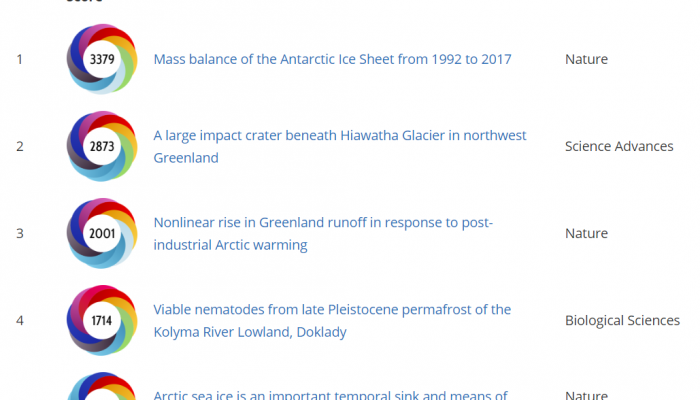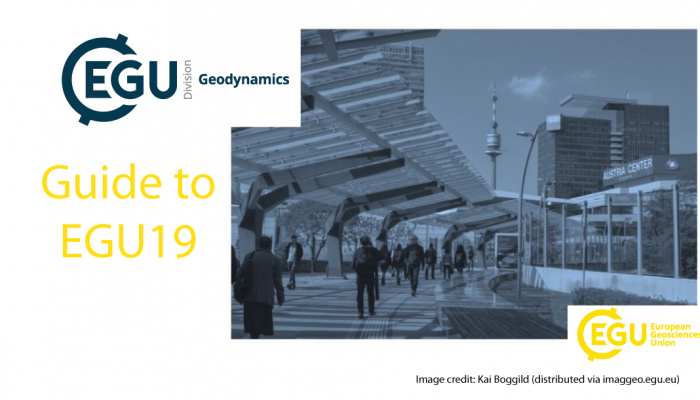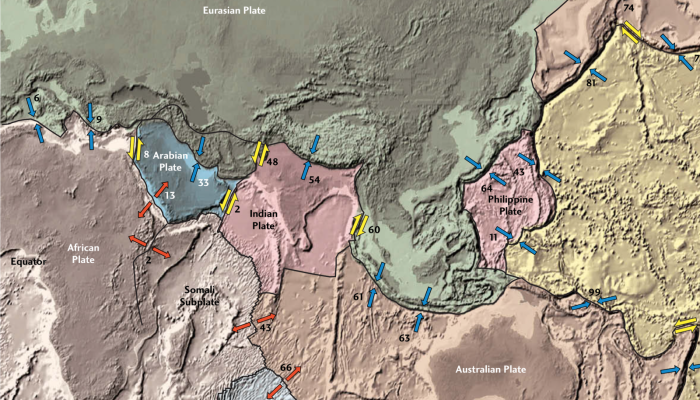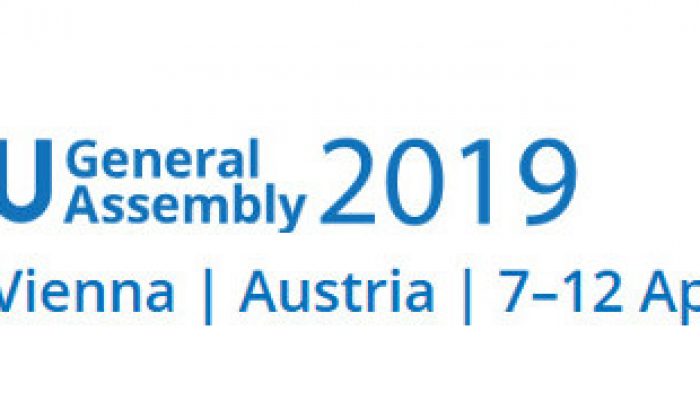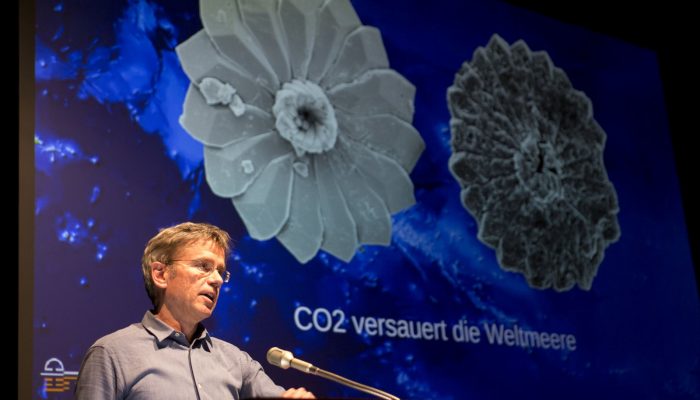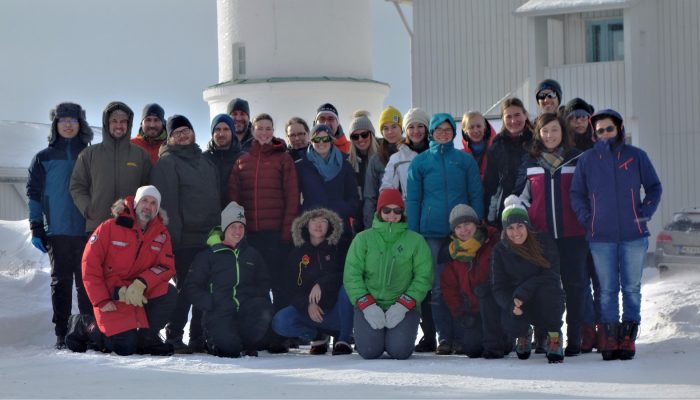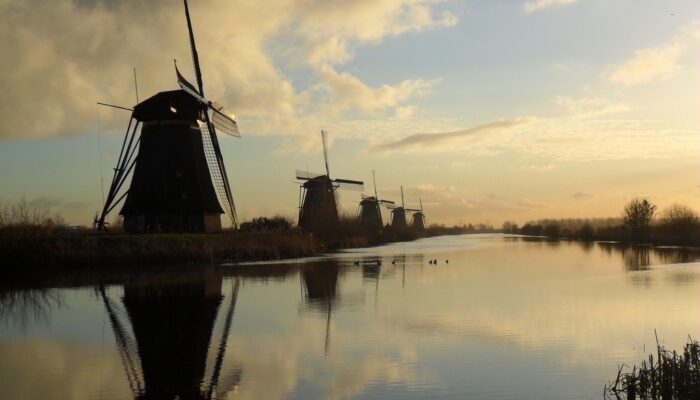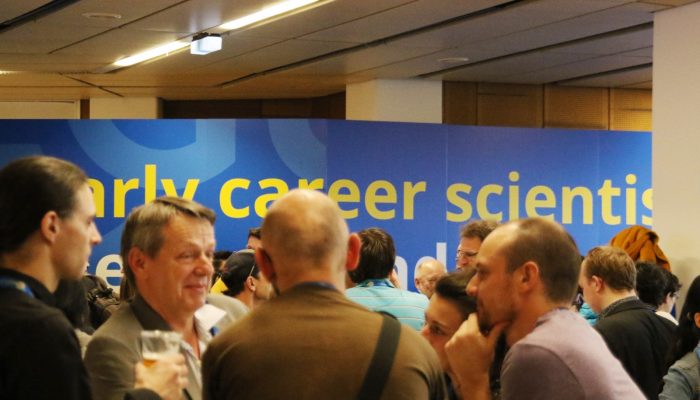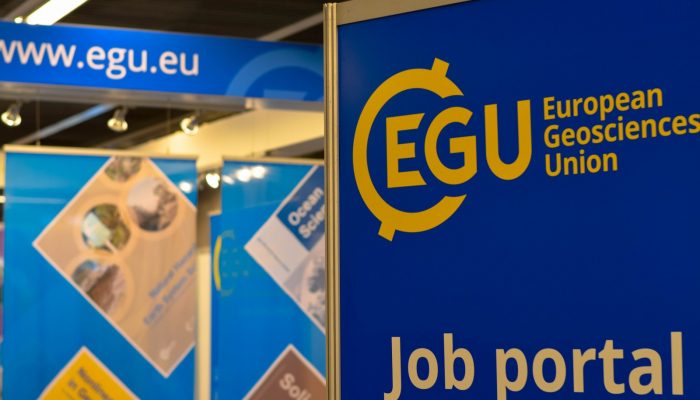Discover which cryospheric research articles were most successful in attracting media attention in 2018 according to the Altmetric score. Cryo Connect and Altmetric Scientists are generally aware of each others’ studies. But when a scientific study generates media interest, its impact can be boosted beyond the scientific community. The media can push the essence of scientific study to the broader ...[Read More]
If you didn't find what you was looking for try searching again.
Geodynamics
GD Guide to EGU19
With this year’s EGU General Assembly (GA; #EGU19) looming in less than a week, it’s time for all attendees to finish (or start) their own scientific contributions, create their own personal programs as well as plan other activities during the conference. In this blog Nico Schliffke (GD ECS Rep) would like to share some useful advice how to successfully navigate through the conference and hi ...[Read More]
Tectonics and Structural Geology
Meeting Plate Tectonics – Dietmar Müller
These blogposts present interviews with outstanding scientists that bloomed and shape the theory that revolutionised Earth Sciences — Plate Tectonics. Get to know them, learn from their experience, discover the pieces of advice they share and find out where the newest challenges lie! Meeting Dietmar Müller Dietmar Müller is Professor of Geophysics at the University in Sydney and leads the EarthByt ...[Read More]
Natural Hazards
#EGU19 program is ready! Are you ready for it?
#EGU19 program is ready! Are you ready for it? The next EGU’s General Assembly is taking place in one week! We bet you already started planning your program for the week, that Natural Hazard (NH) sessions are included, and, especially if you are an Early Career Scientist (ECS), you have found many sessions and courses targeting your specific needs and interests. What fits more to you ...[Read More]
GeoLog
Public engagement events at the EGU General Assembly
Thousands of scientists gather in Vienna every year to network and to present and discuss their research at the Austria Center Vienna (ACV). Aside from a packed and diverse programme for scientists at the meeting, the EGU also organises events aimed at the local Viennese public, as well as a few public engagement events and sessions for scientists at the ACV. Night at the museum: EGU Public Lectur ...[Read More]
Hydrological Sciences
Welcome to the HS division blog
The Hydrological Sciences (HS) Division of the EGU is launching its new blog! Finally, the HS Division is entering the EGU Blogsphere! With this blog, we aim at giving the HS community a platform to communicate new ideas and old thoughts, a bit of history and future perspectives, as well as a glimpse at experimental and modelling studies. In other words, it is a platform to share news, research, a ...[Read More]
Cryospheric Sciences
Image of the Week – 5th Snow Science Winter School
From February 17th to 23rd, 21 graduate students and postdoctorate researchers from around the world made their way to Hailuoto, a small island on the coast of Finland, to spend a week learning about snow on sea-ice for the 5th Snow Science Winter School. The course, jointly organized by the Finnish Meteorological Institute and the Swiss Federal Institute for Forest, Snow and Landsca ...[Read More]
GeoLog
Geosciences Column: Flooded by jargon
When hydrologists and people of the general public use simple water-related words, are they actually saying the same thing? While many don’t consider words like flood, river and groundwater to be very technical terms, also known as jargon, water scientists and the general public can actually have pretty different definitions. This is what a team of researchers have discovered in recent study, and ...[Read More]
GeoLog
What’s on for early career scientists at the Assembly in 2019
This year, there’s a great line-up of early career scientist (ECS) sessions at the General Assembly. Not only that, but there are opportunities to meet those that represent you in the Union, get to know other ECS in your field, and make the most of both the scientific and social sides of the conference… Networking First up for ECS is the icebreaker event during the opening reception on the Sunday ...[Read More]
GeoLog
Advance your career at the General Assembly 2019
Attending the EGU General Assembly offers you countless opportunities to meet scientists from all over the world, learn about the latest advances in the Earth, planetary, and space sciences, and present your research to the science community. This annual meeting is also a great chance to network, pick up tips on how to boost your career, and find job opportunities. Here are just some of the ways t ...[Read More]

